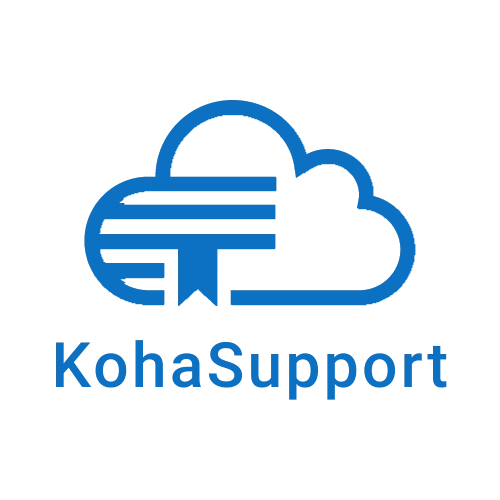Koha vs. OPALS: A Comparison of Two Open-Source Library Management Systems
Koha and OPALS (Online Public Access Library System) are two widely used open-source Integrated Library Systems (ILS). Both offer core features needed to manage collections, circulation, and patrons, and both are actively developed and supported. While they share a commitment to open-source values and affordability, they differ in approach, flexibility, and user experience.
This comparison outlines the key strengths and trade-offs of each system to help you decide which solution is better suited to your library’s needs.
1. Customizability and Flexibility
Koha is known for its high degree of customizability. Libraries can modify settings, install plugins, adjust workflows, and theme both the staff and public interfaces. This flexibility makes it suitable for libraries with unique requirements or technical resources to support customization.
OPALS, on the other hand, prioritizes ease of use and consistency. While it offers configuration options, its customization is more limited compared to Koha. This simplicity appeals to libraries without dedicated IT staff or those seeking a more turnkey solution.
Verdict:
-
Koha: Better for libraries needing deep customization.
-
OPALS: Ideal for libraries that prefer simplicity and lower maintenance overhead.
2. Hosting and Deployment Options
Koha can be self-hosted or run on cloud platforms such as AWS. It’s available as a preconfigured Amazon Machine Image (AMI), giving libraries full control over the server environment. Commercial vendors also offer hosted Koha services.
OPALS is typically offered as a fully hosted solution by Media Flex. This model reduces setup and maintenance efforts, making it particularly attractive to schools and small libraries.
Verdict:
-
Koha: Offers both self-hosted and vendor-hosted flexibility.
-
OPALS: Focuses on managed hosting with less setup complexity.
3. Integration with External Systems
Koha supports a wide range of third-party integrations, including self-checkout machines, payment systems, LDAP/Active Directory, Z39.50/SRU servers, and external discovery layers like EBSCO and Aspen.
OPALS supports key standards such as Z39.50 and MARC and offers integrations tailored to the educational sector (e.g., textbook inventory, curriculum alignment).
Verdict:
-
Koha: Broader integration capabilities for diverse library ecosystems.
-
OPALS: Strong fit for educational settings with focused integrations.
4. Reporting and Analytics
Koha includes a powerful SQL-based reporting module, allowing advanced users to create custom reports and dashboards. However, this feature can be complex for non-technical users.
OPALS provides a library of pre-built reports that cover common needs, with a user-friendly interface. While less flexible than Koha’s reporting tools, it’s easier to use for non-technical staff.
Verdict:
-
Koha: Best for advanced reporting and data analysis.
-
OPALS: Easier for libraries that need ready-made, accessible reports.
5. OPAC and Patron Experience
Koha’s OPAC is fully customizable and responsive, with support for advanced search features and interface theming.
OPALS’ OPAC is clean, consistent, and user-friendly, especially for K–12 schools and smaller libraries. It includes features like federated searching and e-resource linking out of the box.
Verdict:
-
Koha: Offers more control and design flexibility.
-
OPALS: Focuses on simplicity and ease of use for patrons.
6. Community and Support
Koha has a large global user and developer community, with regular releases, mailing lists, and commercial vendors offering support. Its development model is community-driven.
OPALS is primarily developed and supported by Media Flex, with a strong focus on customer service and direct vendor support. It also has a dedicated user base, particularly in the educational sector.
Verdict:
-
Koha: Community-driven with multiple support options.
-
OPALS: Centralized development with strong vendor support.
Summary
| Feature | Koha | OPALS |
|---|---|---|
| Customization | High (themes, plugins, workflows) | Moderate (focused on ease of use) |
| Hosting Options | Self-hosted, vendor-hosted, AWS-ready | Vendor-hosted (Media Flex) |
| Integration Capabilities | Extensive (APIs, LDAP, Z39.50, etc.) | Targeted (education-focused features) |
| Reporting | Advanced SQL-based reports | Pre-built, easy-to-use reports |
| OPAC Experience | Fully customizable | Simple, accessible for school users |
| Community & Support | Large open-source community + vendors | Centralized support via Media Flex |
Final Thoughts
Both Koha and OPALS are excellent open-source solutions, but they serve slightly different audiences and priorities:
-
Choose Koha if you need flexibility, integration options, or plan to self-host on platforms like AWS.
-
Choose OPALS if you want a simpler, hosted solution with strong support and minimal technical overhead—especially in K–12 environments.
Ultimately, the right choice depends on your library’s size, staffing, technical capacity, and long-term goals.
